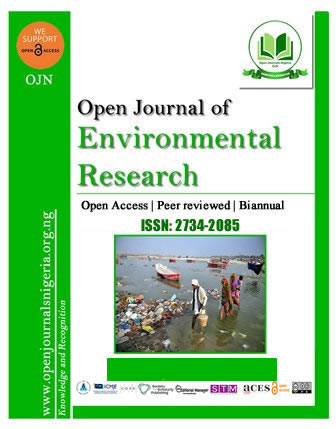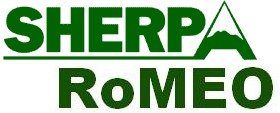ASSESSMENT AND CHARACTERIZATION OF PLASTIC POLLUTION IN TWO COASTAL SITES IN LAGOS NIGERIA: IMPLICATIONS FOR ENVIRONMENTAL MANAGEMENT AND PUBLIC AWARENESS.
DOI:
https://doi.org/10.52417/ojer.v5i1.621Abstract
Plastics, synthetic organic polymers derived from oil or gas, have become ubiquitous due to their versatility. However, their excessive use has led to a significant global issue: marine litter. This pollution poses severe threats to marine life and coastal environments, creating a critical environmental challenge with widespread effects on ecosystems, human health, and economies. Coastal cities like Lagos, Nigeria, are particularly affected due to rapid population growth, urbanization, and inadequate waste management. In Lagos, the communities of Makoko and Ilaje were studied for their plastic pollution levels. These areas face high plastic waste accumulation, exacerbated by insufficient waste management infrastructure and urban runoff. The study involved both physical sampling of plastics and surveys to understand local plastic usage, disposal practices, and awareness of pollution impacts. In Makoko, the majority of plastic waste consists of polyamide (nylon) at 48%, followed by plastic bottles at 36%. A significant portion of respondents (52%) admitted to improper plastic waste disposal, reflecting serious deficiencies in waste management practices and low awareness of environmental impacts. Conversely, Ilaje primarily deals with polyethylene terephthalate (PET), making up 62% of the waste, largely due to the high consumption of bottled products. Both communities demonstrate a pressing need for improved waste management systems and better public education on plastic pollution. The study advocates for enhanced infrastructure, effective recycling programs, and public awareness campaigns. It also recommends implementing the "Polluter Pays Principle" to encourage responsible plastic disposal and recycling, which is crucial for mitigating environmental and health impacts, promoting sustainable urban development, and reducing plastic pollution in coastal regions.
Published
How to Cite
Issue
Section
Copyright (c) 2024 Ebelechukwu & Asekun

This work is licensed under a Creative Commons Attribution 4.0 International License.




















